15 Times Companies Were Accused of False Advertising
Carly Tennes
Published
06/17/2024
in
facepalm
Most of us know not to believe everything we see in advertisements. That body spray won't turn you into chick magnet, that mascara won't make you look like Gigi Hadid, and Gatorade won't dye your sweat different colors—much to our elementary school selves' chagrin.
Yet even so, some companies have pushed their claims beyond the boundaries of what is fair in advertising, mistakes that landed much bigger consequences than sparking eye-rolls with consumers.
From Red Bull failing to make drinkers grow wings to the scandal at the center of Activia's Jamie Lee Curtis-starring ad campaign, here are 15 times companies landed in big trouble for false advertising.
- List View
- Player View
- Grid View
Advertisement
-
1.
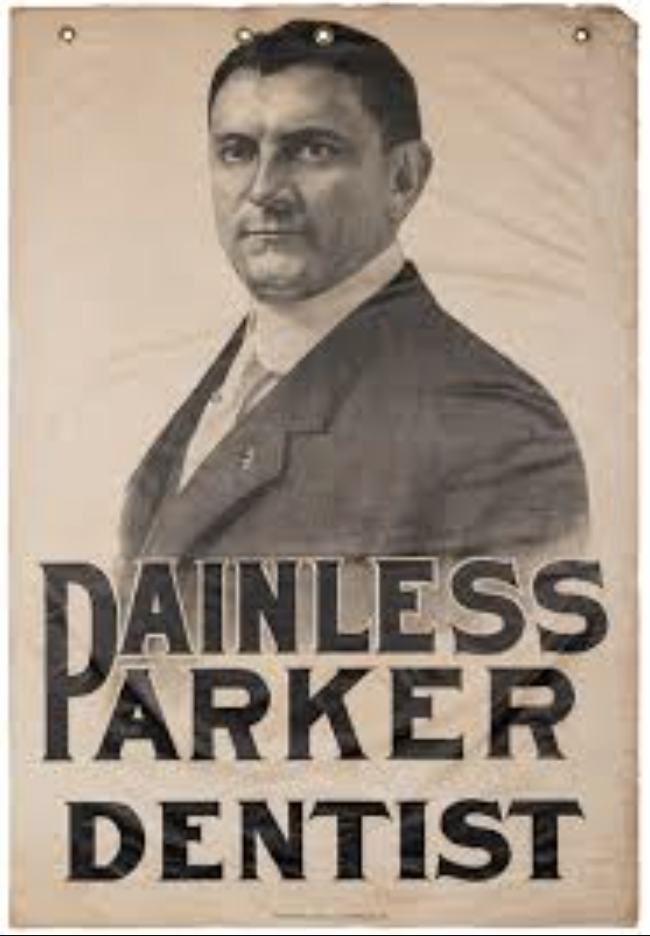 “A dentist named Edgar Parker legally changed his first name to "Painless", when he was accused of breaking a false advertisement law by claiming that his dentistry was truly painless.”
“A dentist named Edgar Parker legally changed his first name to "Painless", when he was accused of breaking a false advertisement law by claiming that his dentistry was truly painless.” -
2.
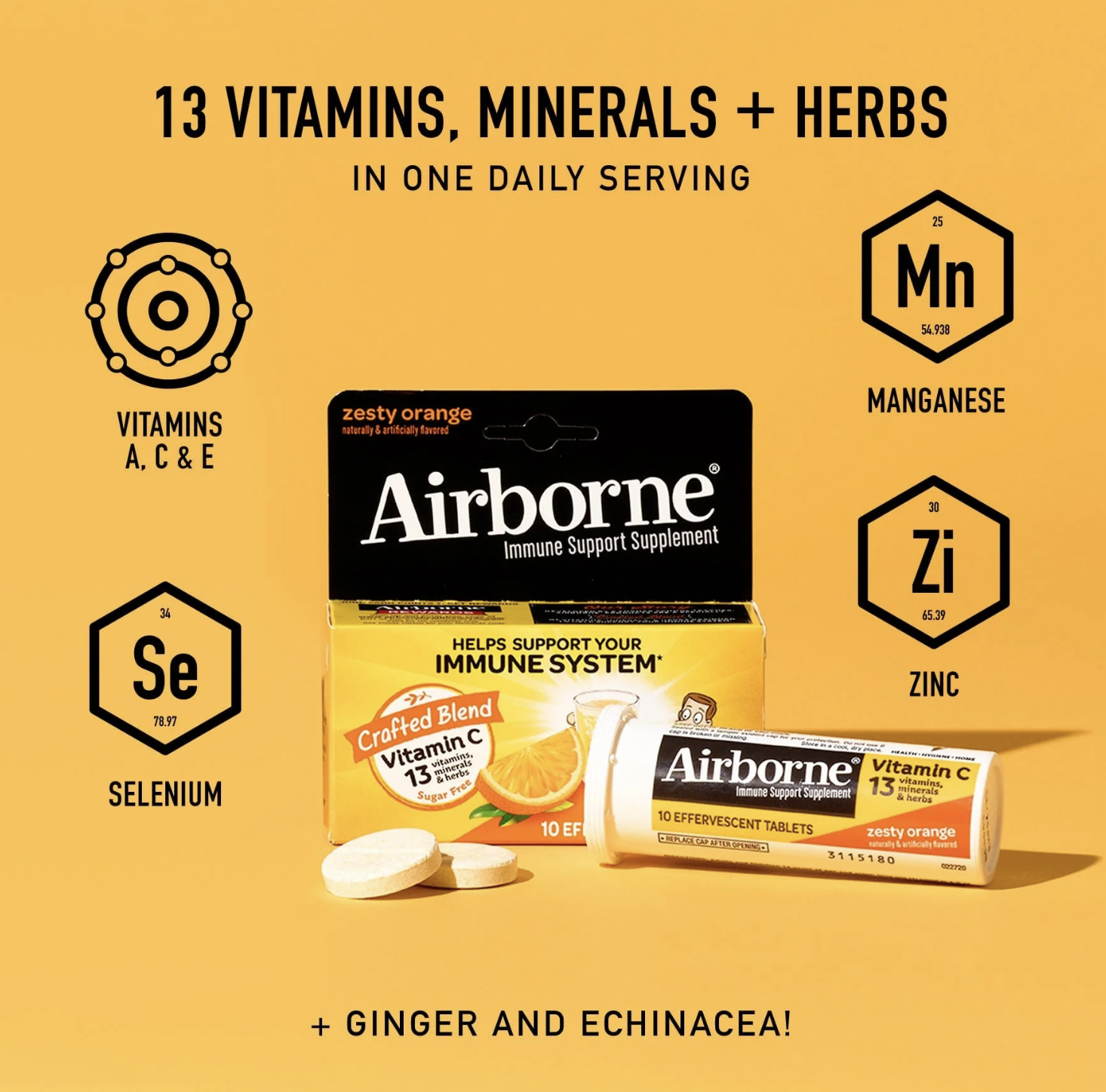 “For 10 years Airborne was falsely advertising as a ‘immune system booster’ and settled for $23.3 million from a class-action lawsuit.”
“For 10 years Airborne was falsely advertising as a ‘immune system booster’ and settled for $23.3 million from a class-action lawsuit.” -
3.
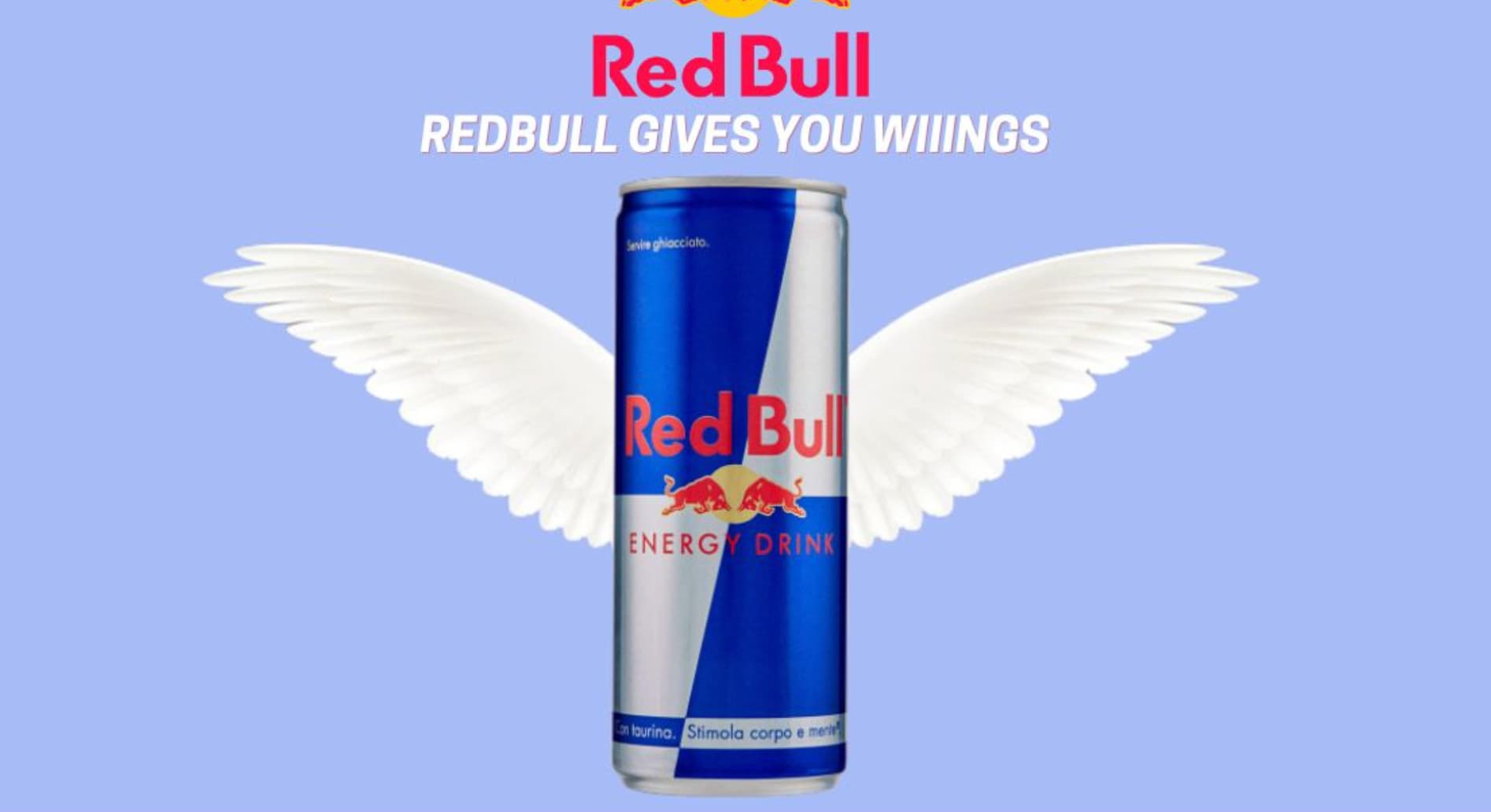 “Red Bull was sued for 'false advertising' by a consumer after 10 years of drinking Red Bull that he neither grew wings nor any enhanced athletic or intellectual performance.”
“Red Bull was sued for 'false advertising' by a consumer after 10 years of drinking Red Bull that he neither grew wings nor any enhanced athletic or intellectual performance.” -
4.
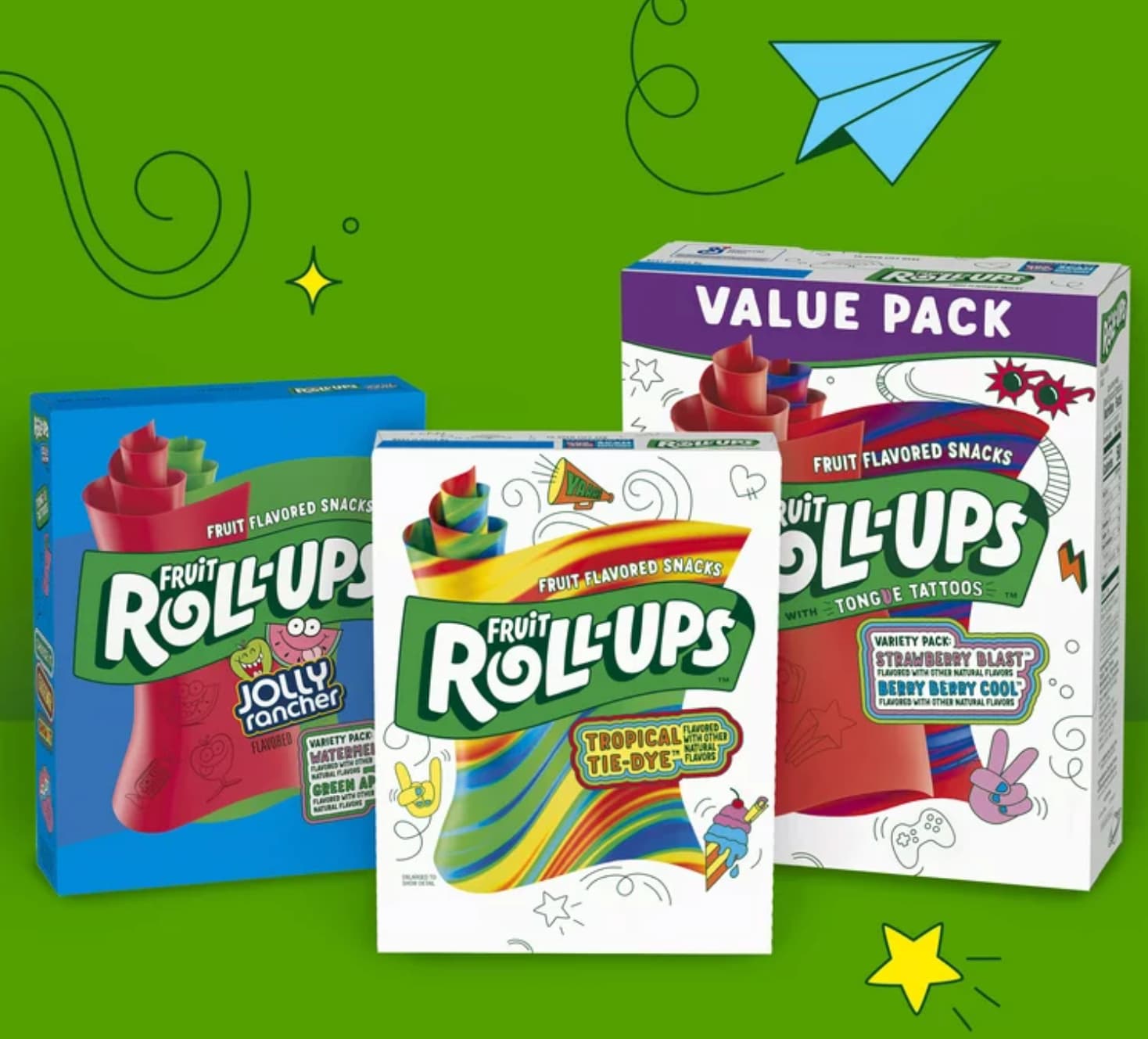 “Fruit Roll-Ups, in compliance with a false advertising suit, cannot display fruit imagery on their packages if the flavor doesn't actually contain that fruit.”
“Fruit Roll-Ups, in compliance with a false advertising suit, cannot display fruit imagery on their packages if the flavor doesn't actually contain that fruit.” -
5.
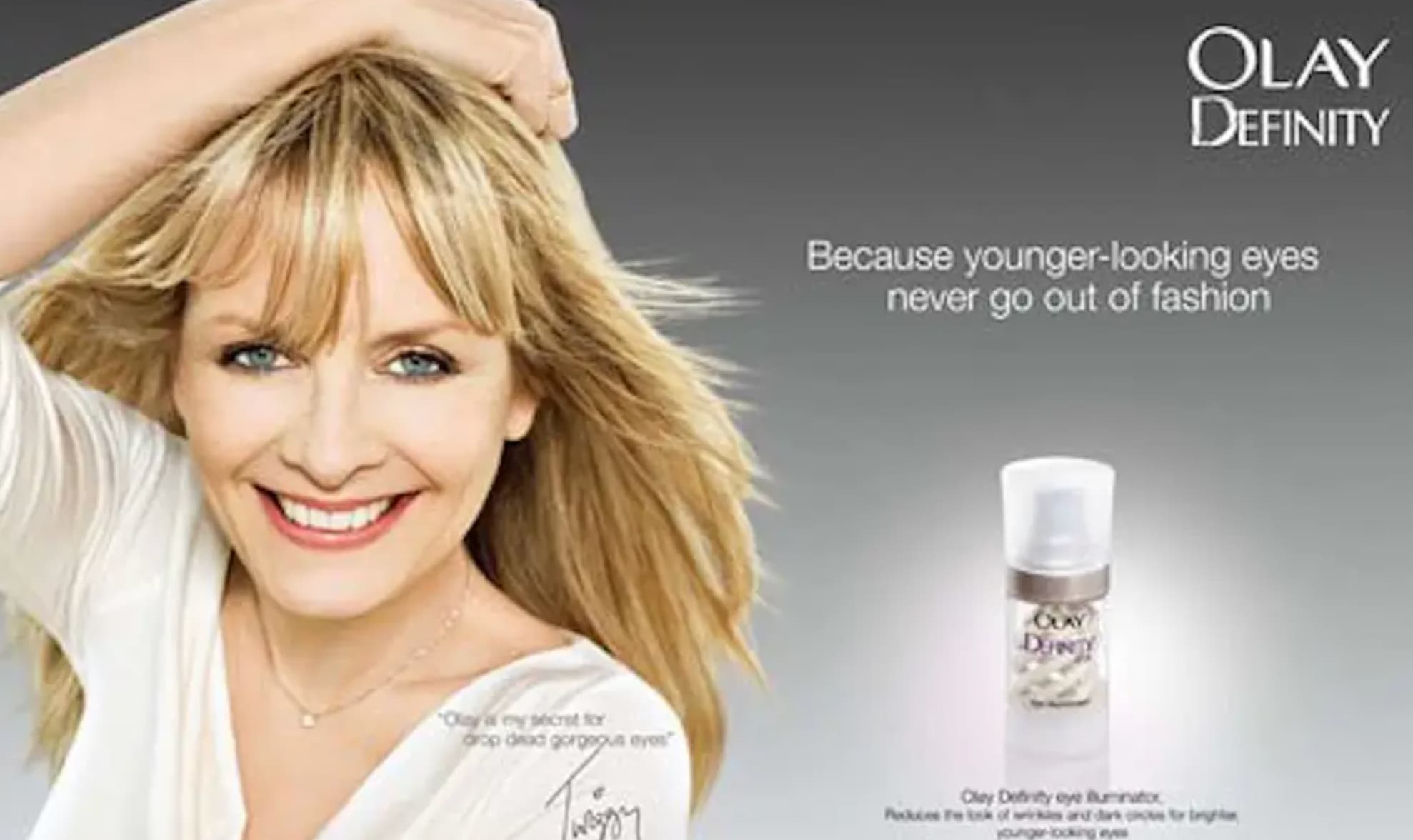 Olay found itself in hot water after failing to disclose that they retouched model Twiggy in an advertisement for their anti-aging cream, making the product appear more effective than it actually was.
Olay found itself in hot water after failing to disclose that they retouched model Twiggy in an advertisement for their anti-aging cream, making the product appear more effective than it actually was. -
6.
 “A Land Rover commercial was banned by the Advertising Standards Authority because it had sounds of beeping parking sensors as a Land Rover backs up closer to the edge of a cliff. Two viewers had submitted complaints because the SUV's rear parking sensors were not capable of detecting cliff edges”
“A Land Rover commercial was banned by the Advertising Standards Authority because it had sounds of beeping parking sensors as a Land Rover backs up closer to the edge of a cliff. Two viewers had submitted complaints because the SUV's rear parking sensors were not capable of detecting cliff edges” -
7.
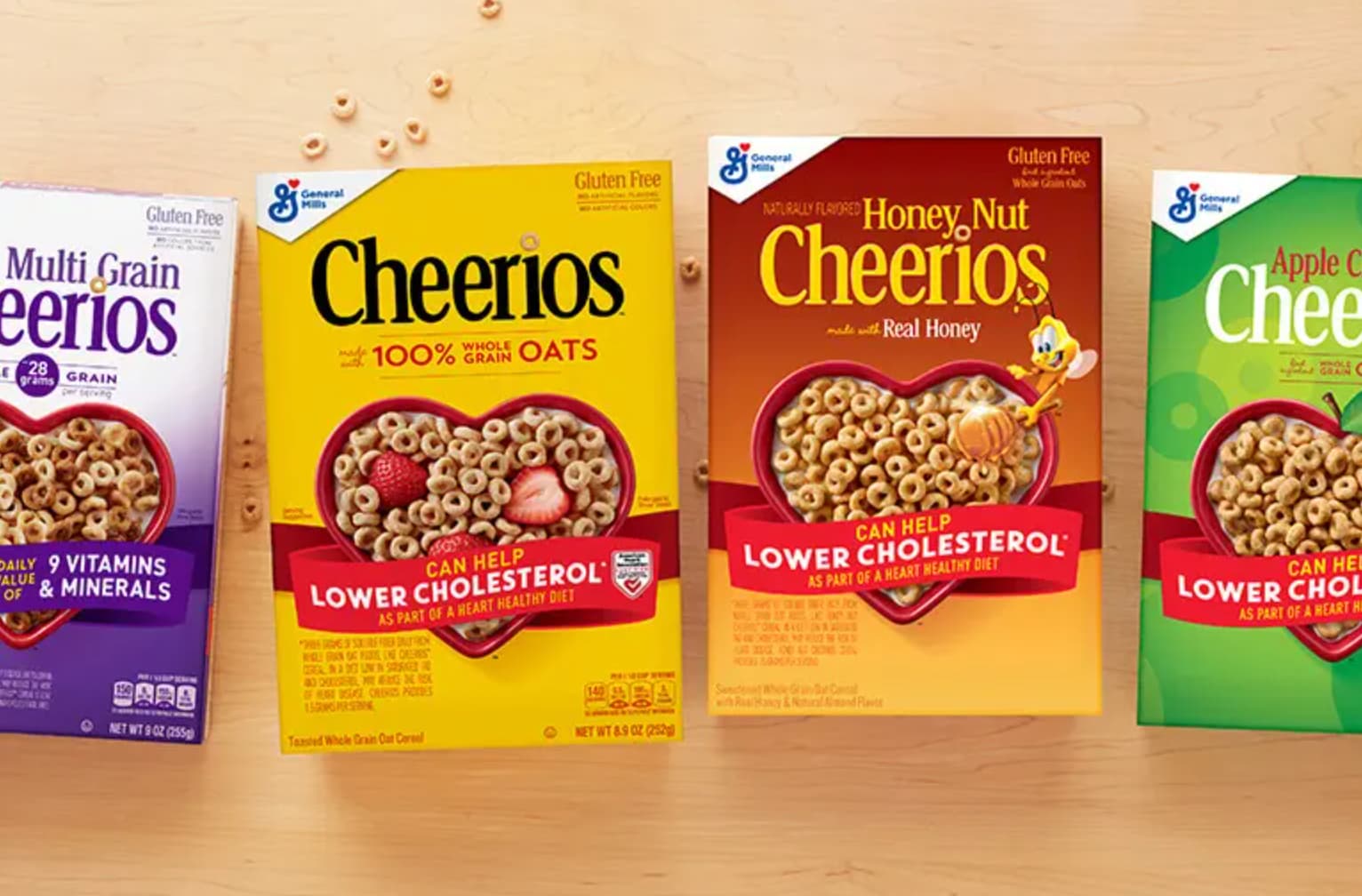 “The claim on Cheerios' box that it could lower cholesterol by 4% was removed after the FDA warned General Mills that it was false advertising. GM fought back but eventually changed the box to read the cereal could lower cholesterol as part of a heart healthy diet.”
“The claim on Cheerios' box that it could lower cholesterol by 4% was removed after the FDA warned General Mills that it was false advertising. GM fought back but eventually changed the box to read the cereal could lower cholesterol as part of a heart healthy diet.” -
8.
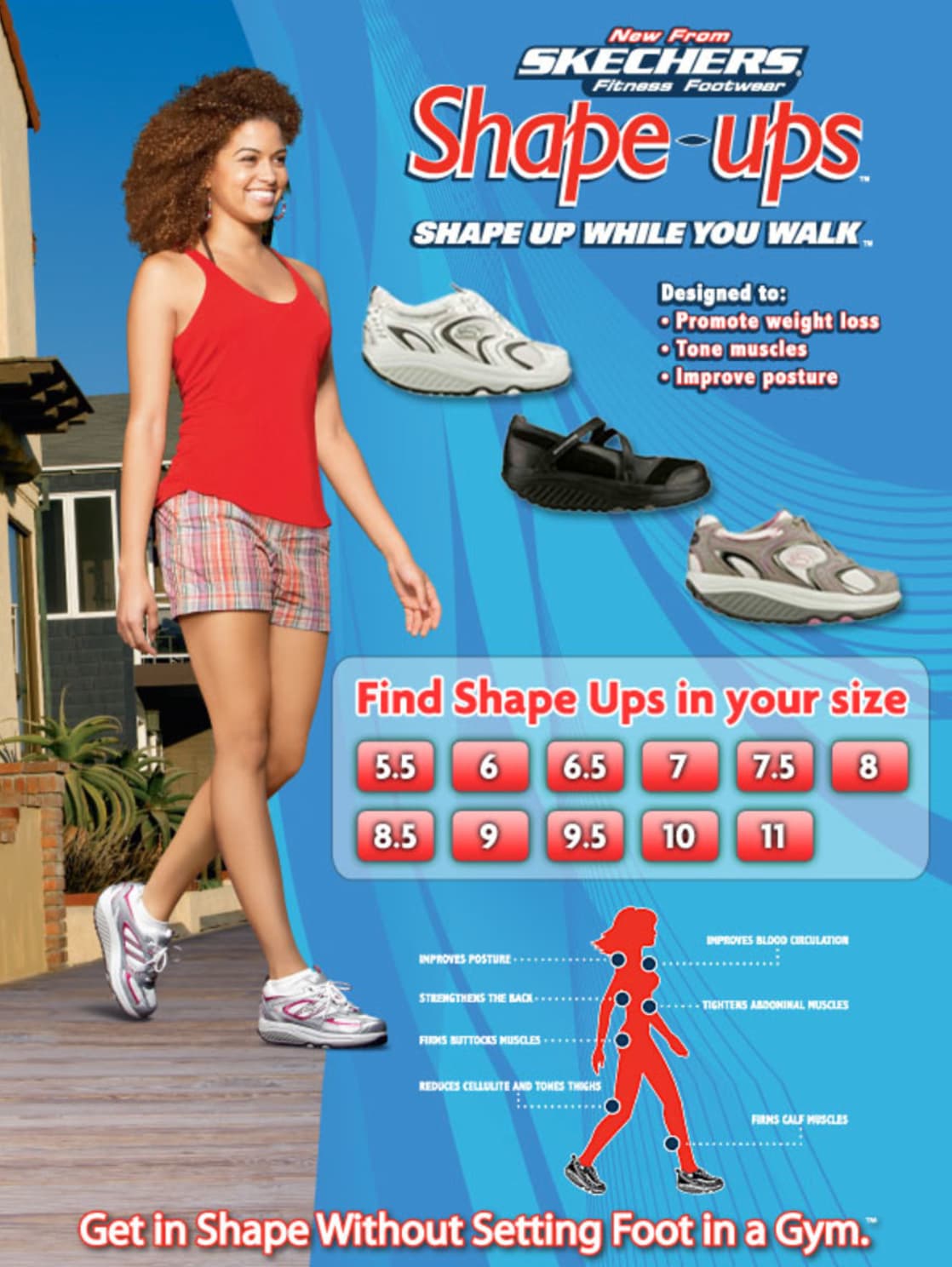 After sharing unfounded claims that their “Shape-ups” sneakers could help tone the wearer’s muscles and assist in weight loss, the brand was forced to settle with the FTC for $40 million. “The FTC’s message, for Skechers and other national advertisers, is to shape up your substantiation or tone down your claims,” FTC higher-up David Vladeck said at the time.
After sharing unfounded claims that their “Shape-ups” sneakers could help tone the wearer’s muscles and assist in weight loss, the brand was forced to settle with the FTC for $40 million. “The FTC’s message, for Skechers and other national advertisers, is to shape up your substantiation or tone down your claims,” FTC higher-up David Vladeck said at the time. -
9.
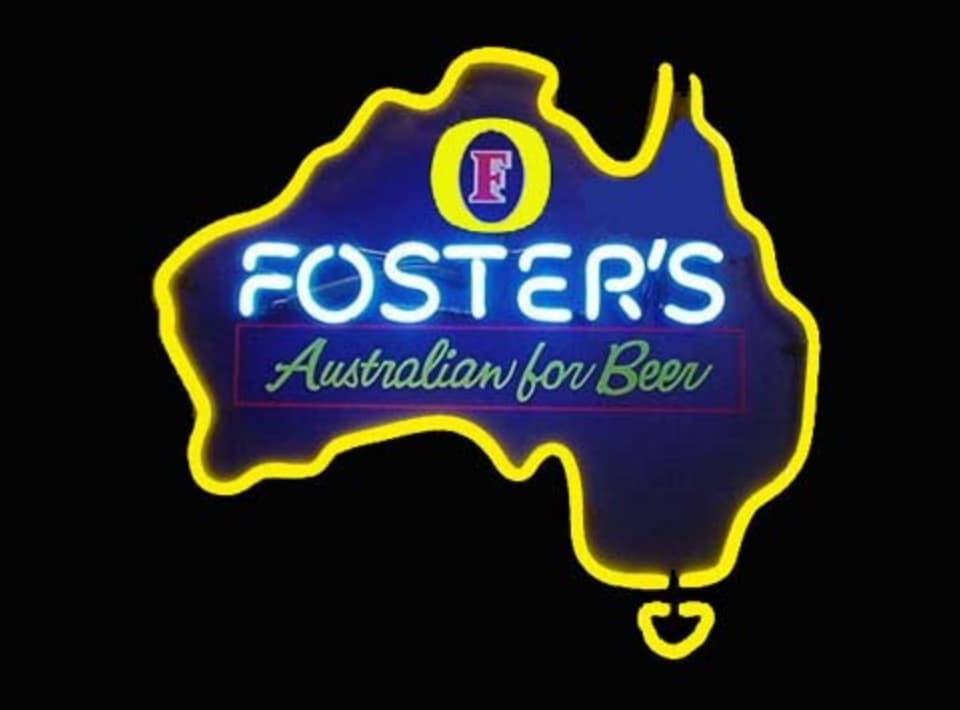 “A New York man sued Miller Brewing Co. for false advertising, claiming that its Fosters commercials convinced him that the beer was Australian. In fact, the beer is actually brewed in Fort Worth, Texas.”
“A New York man sued Miller Brewing Co. for false advertising, claiming that its Fosters commercials convinced him that the beer was Australian. In fact, the beer is actually brewed in Fort Worth, Texas.” -
10.
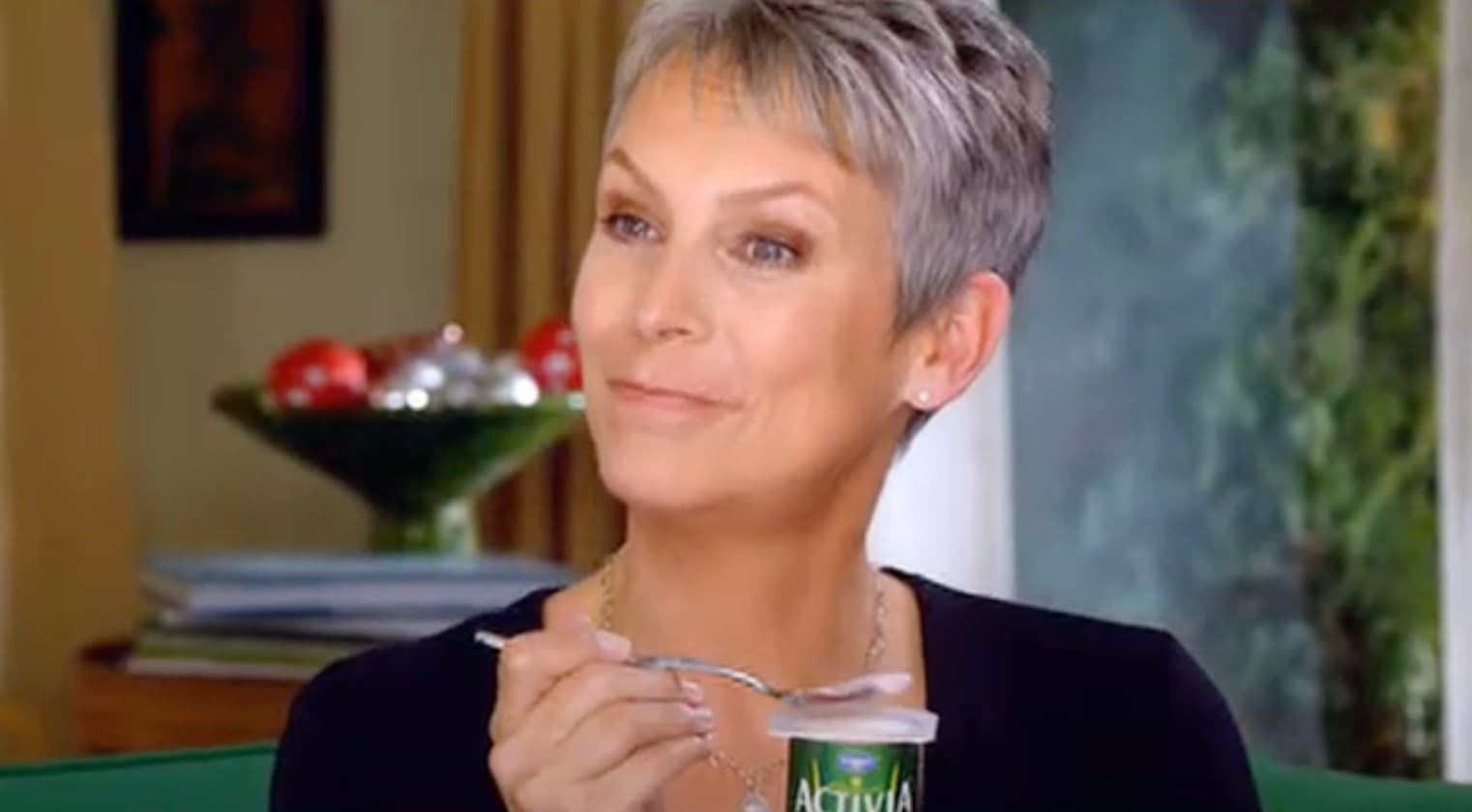 Despite their infamous ad campaign starring Jamie Lee Curtis, Dannon Yogurt was ordered to pay $45 million in damages after alleging that Active was “clinically” and “scientifically” proven to have gut-boosting effects.
Despite their infamous ad campaign starring Jamie Lee Curtis, Dannon Yogurt was ordered to pay $45 million in damages after alleging that Active was “clinically” and “scientifically” proven to have gut-boosting effects. -
11.
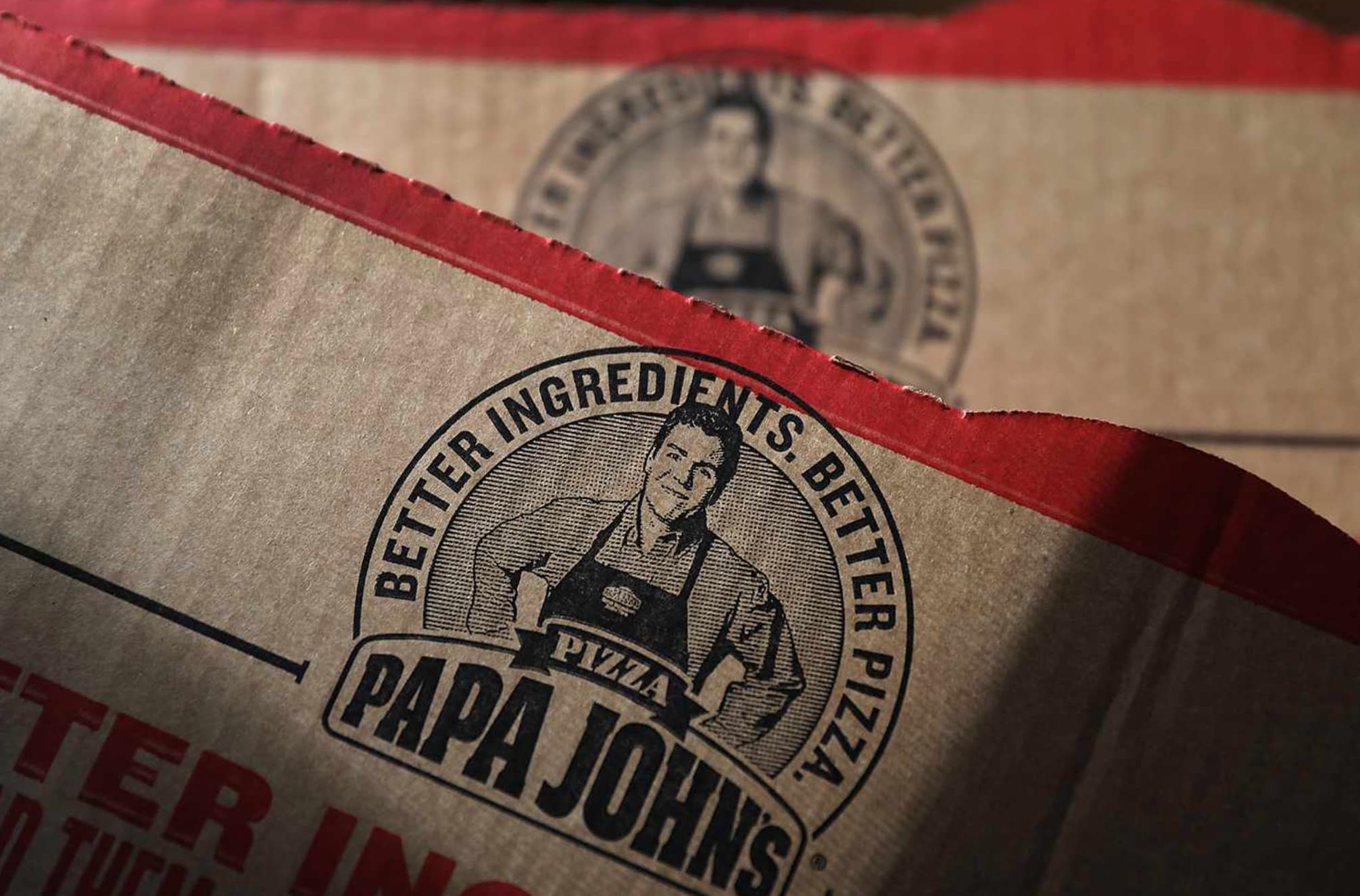 “Pizza Hut once sued Papa Johns, claiming that the slogan "Better ingredients. Better Pizza." is false advertising.”
“Pizza Hut once sued Papa Johns, claiming that the slogan "Better ingredients. Better Pizza." is false advertising.” -
12.
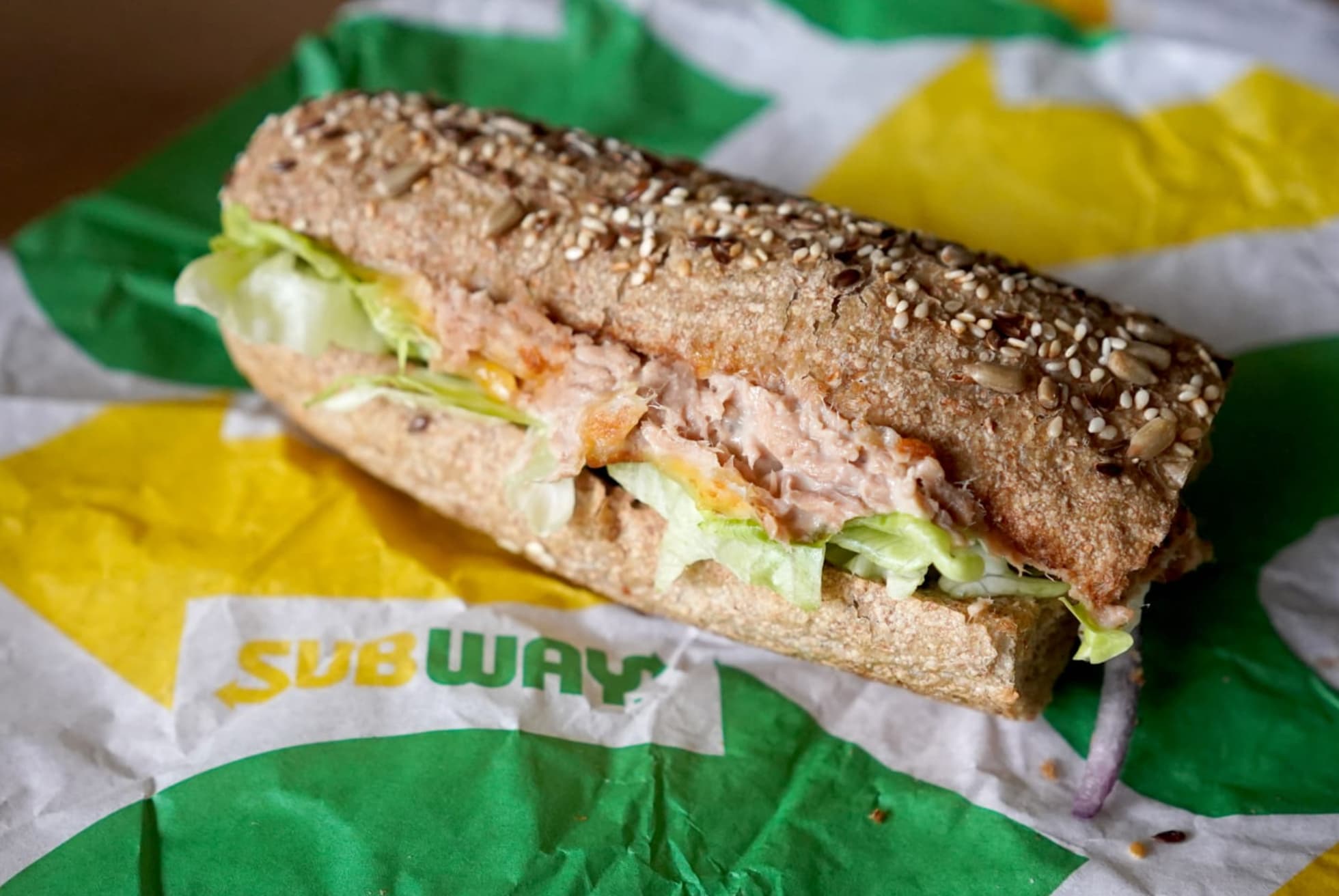 In 2020, two women sued Subway claiming that the “tuna” offered at their stores did not actually contain tuna.
In 2020, two women sued Subway claiming that the “tuna” offered at their stores did not actually contain tuna. -
13.
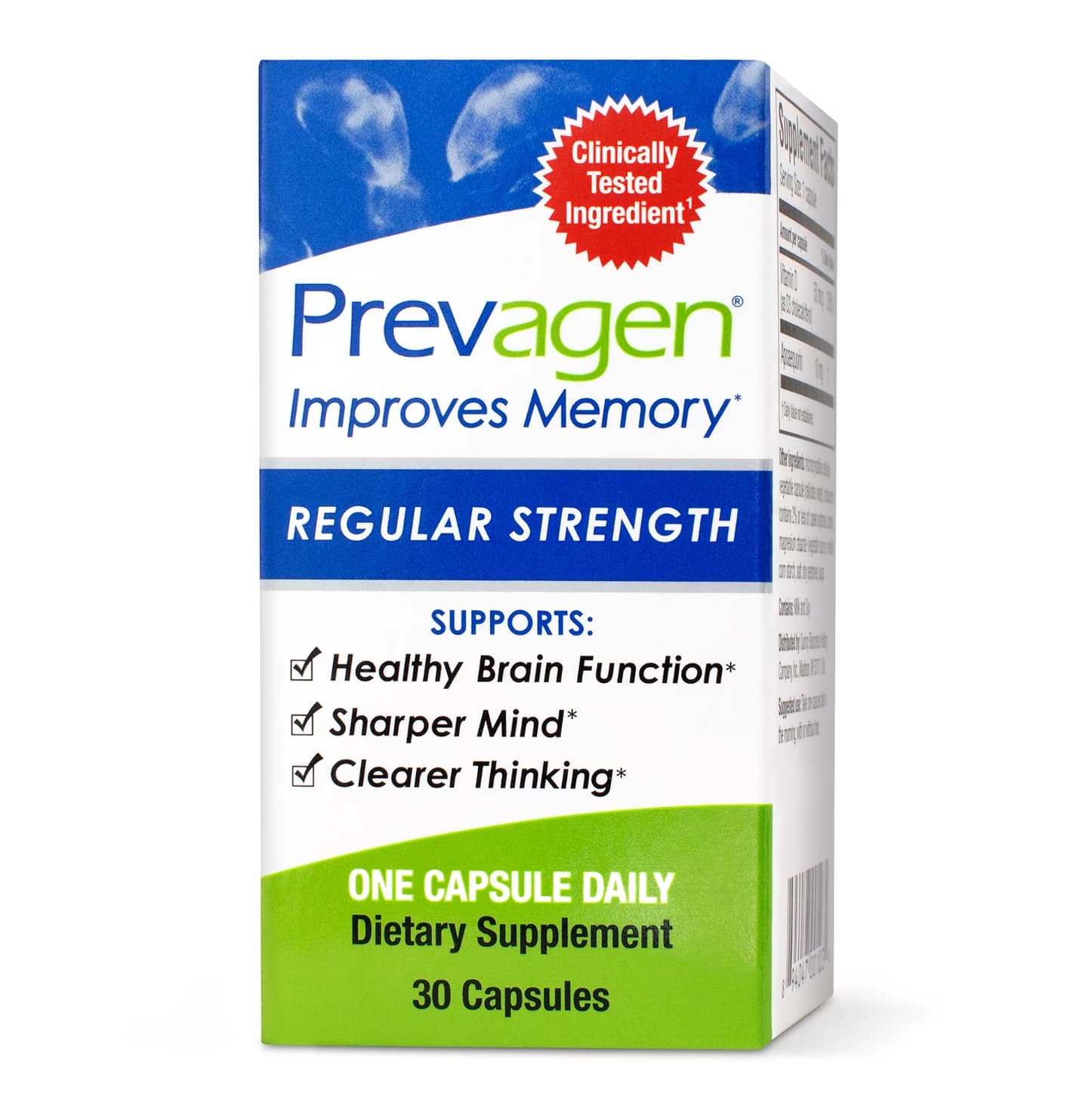 “The 'memory supplement' Prevagen has been charged with false advertising by the FTC as it is simply the jellyfish bioluminescent protein Apoaequorin which has no known effect on human health.”
“The 'memory supplement' Prevagen has been charged with false advertising by the FTC as it is simply the jellyfish bioluminescent protein Apoaequorin which has no known effect on human health.” -
14.
 “The FTC once issued a cease and desist order to Campbell's Soup company for using marbles in their soup ads. The marbles were placed in the bottom of the soup to push the solid ingredients to the top, which was considered deceptive.”
“The FTC once issued a cease and desist order to Campbell's Soup company for using marbles in their soup ads. The marbles were placed in the bottom of the soup to push the solid ingredients to the top, which was considered deceptive.” -
15.
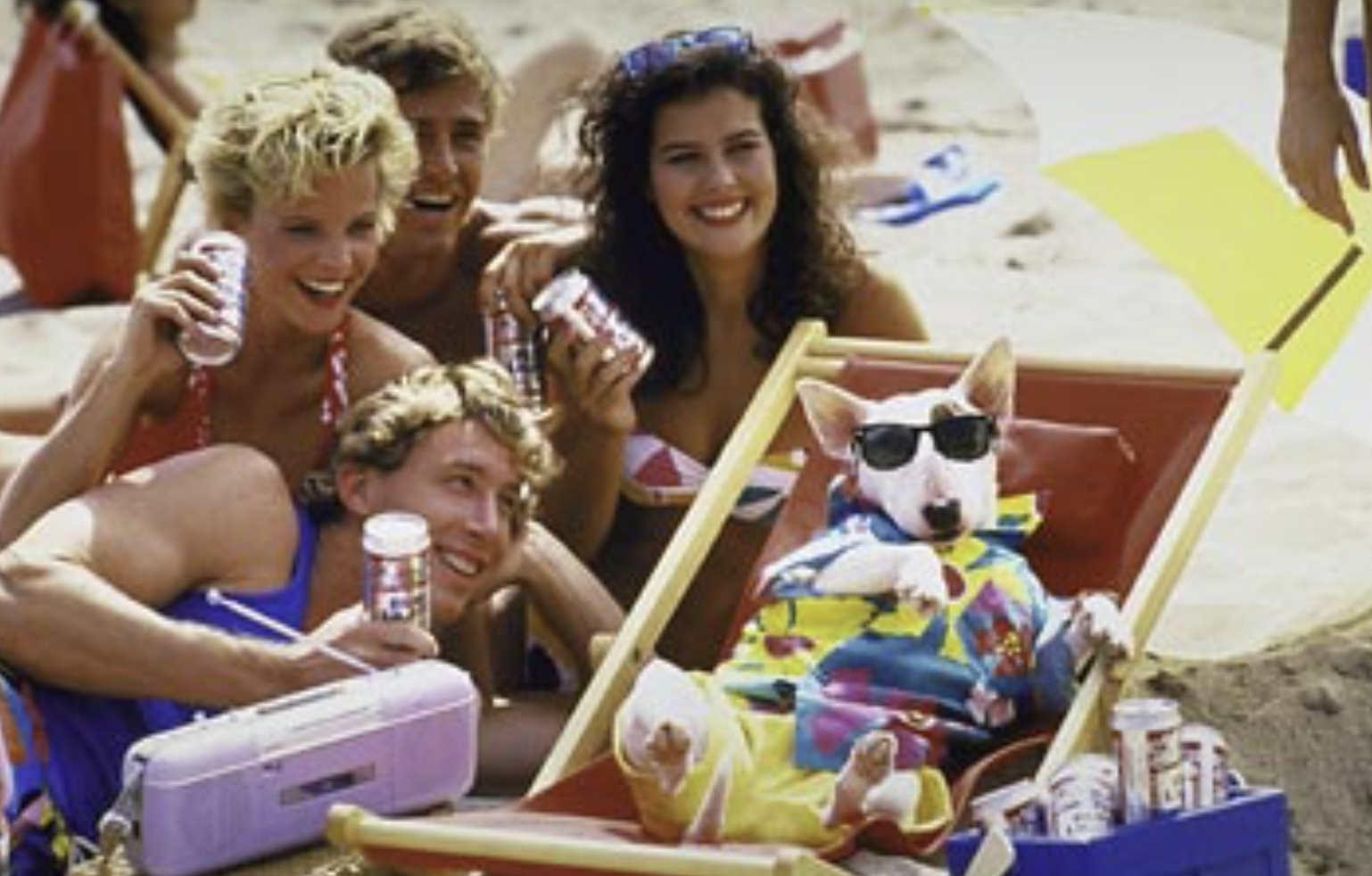 “In 1991 a man sued Anheuser-Busch for $10,000 citing false advertising, claiming that the company's ads which depicted beer's magical ability to facilitate ‘scenic tropical settings [and] beautiful women and men engaged in endless and unrestricted merriment’ turned out to be ‘untrue.’”
“In 1991 a man sued Anheuser-Busch for $10,000 citing false advertising, claiming that the company's ads which depicted beer's magical ability to facilitate ‘scenic tropical settings [and] beautiful women and men engaged in endless and unrestricted merriment’ turned out to be ‘untrue.’”
“A dentist named Edgar Parker legally changed his first name to "Painless", when he was accused of breaking a false advertisement law by claiming that his dentistry was truly painless.”
15/15
1/15



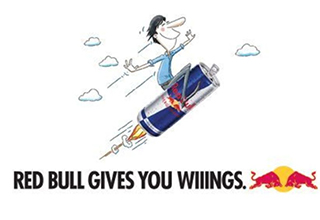




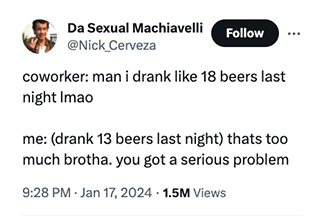

0 Comments